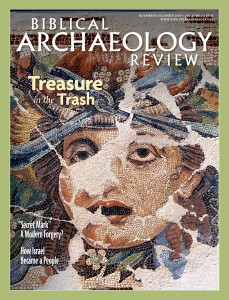Archaeological Views: The Economic Downturn Hits Biblical Archaeology

Professors of Biblical archaeology standing in bread lines? Well, no—at least not yet. The downturn in the economy, however, has hit the fields of Biblical archaeology and ancient Near Eastern studies particularly hard.
Even in the best of times, it is difficult to find a permanent job in these fields. The number of new Ph.D.s entering the job market every year almost always surpasses the number of available positions in universities, museums or antiquities departments. Scholars who teach Hebrew or Biblical archaeology are in a slightly better position than those teaching Hittite, for example, because these fields are more popular and are taught in a variety of seminaries and liberal arts colleges. However, because these fields are so popular, more people earn Ph.D.s in them, meaning the competition for available jobs is still fierce.
Freshly minted Ph.D.s often hope either to land a full-time teaching job right away or, as is more common, to obtain postdoctoral fellowships that provide new scholars the opportunity to conduct research, develop their publication records and acquire valuable teaching experience. Hopefully the fellowships, publications and teaching experience make them more attractive on the job market, thereby increasing their chances of eventually landing a tenure-track job. Some do land such jobs, while others move from one temporary position to another like academic nomads. Still others decide simply to leave the field altogether.
Already a library member? Log in here.
Institution user? Log in with your IP address.

